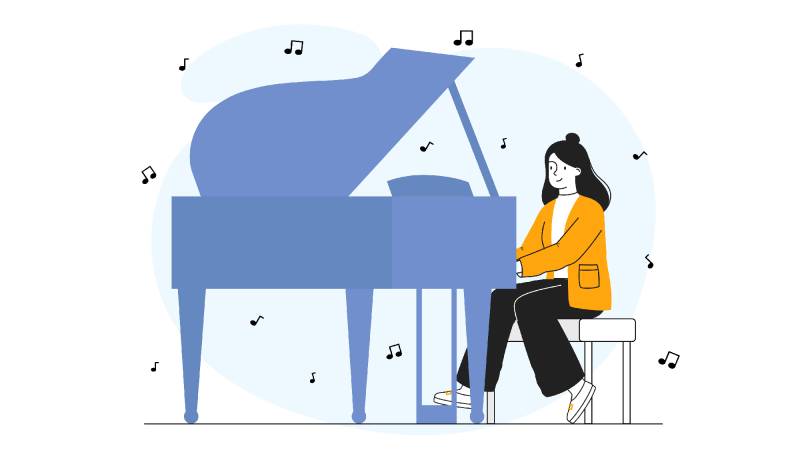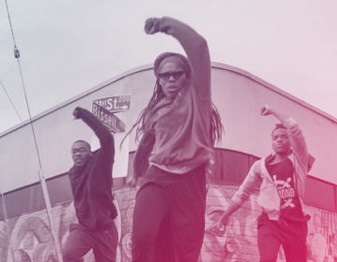It’s me and a small army of children roaming the music center’s campus, a recently expanded complex of two Victorians stuffed with practice rooms, offices and a recital hall. The other adults are mostly instructors, staff and parents. I love the bustle. It’s as cacophonous as you would imagine: irregular taps on snare drums, shrill woodwinds piercing closed doors, jazz ensembles stopping and starting sporadically.
Along with getting a check mark from my teacher on a well-performed piece (emotionally, I am still 10, it seems), one of the things I enjoy most in these weekly sessions is talking out musical notation with him, wrapping my head around keys, chords and their variations. I want to understand this rediscovered language of symbols, its rules and conventions. At home, I lose myself in hours of practice.
This, I’ll admit, is somewhat new for me. I have not always been the best at sticking with the harder stuff. As a sporty kid with good eye-hand coordination, I expected all things in life to come to me as easily as basketball and softball did.
I barely remember practicing the piano in elementary school. I definitely remember barely practicing percussion in high school. Academically, languages, especially, did not click — and I failed to work at them. I ditched French as soon as I could in high school, picking up statistics as a far more agreeable extra math credit.
For some reason — age, or the pressure of a significant monetary commitment — it’s different this time around. To go from plunking around awkwardly, feeling out a piece, to faithfully (if slowly) performing it all the way through brings me an immense sense of accomplishment. Every week, I thrill at my check mark. But I also don’t need the check. The pleasure of practicing, of marking my own progress, is, as hokey as it sounds, its own reward.
None of this is really a surprise. Studies show that engaging in artistic, expressive hobbies has clear mental health benefits. And yet much of my life has been shaped by narrowly focused professionalism. I am a professional arts writer and a professional visual artist. I take pride in doing these things well — and working hard to do them better. Sometimes I feel like even to have those two identities is holding me back in one or the other field. Should I narrow my focus even more?
Amateurism is freeing. Bumbling along, learning a skill, recognizing the vast distance between your current abilities and wherever you might want to be in the future adds an immeasurable richness to daily life. Not only does it give me something to talk to people about (“I started taking piano lessons!”), it breaks me out of the monotony of what can sometimes feel like a plateaued mid-life existence.
I’m not sure where my piano lessons will take me, or how long this particular musical interlude will last. But I do know that tonight I’ll sit down at my electric piano and simply … play.


